Even for a veteran of foreign assignments, sometimes just getting there can be the hardest part.
Going to a United Nations Peacekeeping mission on what they call a “fixed-term appointment” of at least a year, you get a choice: They will ship 1,000 kilograms—about 2,200 pounds—of your personal possessions, or they will pay you $10,000. I took the money, of course. The net result was two very large bags filled with what I thought I needed to get me through at least a year in Liberia. One big green one that was 28kg and an even bigger black one that weighed in at 58kg and looked like I was smuggling a corpse.
With a couple of hours to spare, I drag them to the Toronto airport and verify that they will be okay to go to Monrovia, the capital of Liberia, where the UN mission is headquartered. But first I’ll be stopping for a week in Brindisi, a balmy, sluggish port city in the heel of Italy’s boot, where I have to spend a week of training at the UN’s logistics base there. Flying business class on the UN’s dime, I don’t even have to pay any overage fees. Sweet. I settle in the lounge over a cold Guinness and some suspiciously soft chocolate chip cookies and prepare to re-enter the world of the United Nations.
There is an old joke that heaven is where you are courted by the French, the Italians cook for you, the trains are German, the police are English, and the whole thing is run by the Swiss. Hell—and you can see where this is going—is where the police are German, the English cook for you, the lovers are Swiss, the trains are French, and the whole thing is run by the Italians.
Working for the UN is like living in some bizarre limbo where you eat Zambian food, take Peruvian trains, the lovers are Danish, the police are Filipino, and the whole thing is run by nameless, faceless bureaucrats. Ten years ago I spent a year in the mission in Kosovo. I love the people. I love the ideals. I love the adventure. But as I head to Liberia to work on the reform of the country’s justice sector, I know that no organization in the universe aspires higher yet fails more miserably than the United Nations. It just doesn’t work.
A two hour stop in Montreal allows me to stretch my legs. I sleep on the leg to Brussels and take advantage of the seven-hour layover to catch a train into the city center. I drink Americanos in the Gallerie du Roi and watch the world stroll by. It feels so good to be in Europe again. It has been more than four years since I have been rudely treated by an aged, arrogant waiter and served such terrible coffee. I love it.
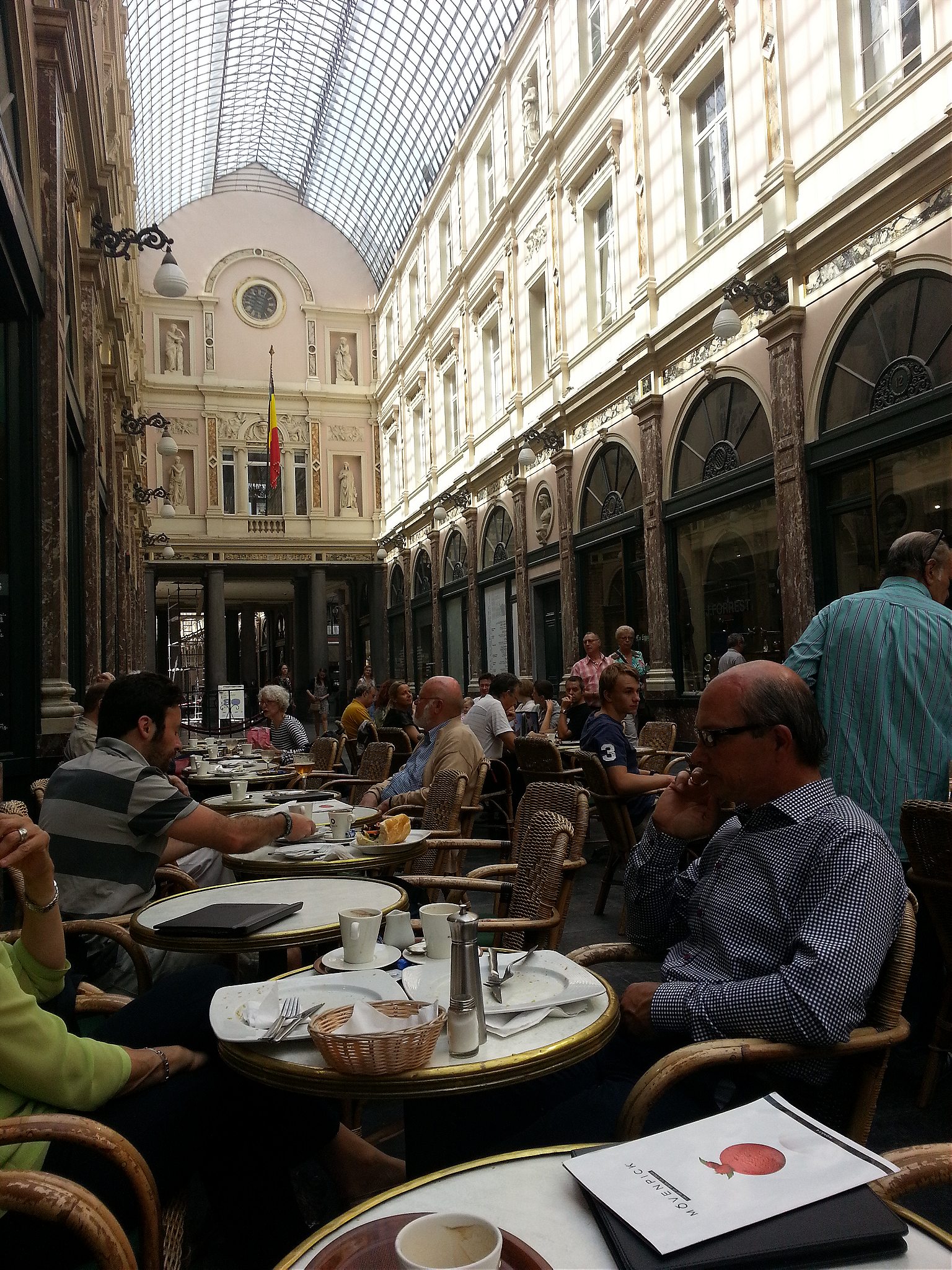
The flight to Rome is decidedly less luxurious. And—indignity of indignities—I am back in economy with the hoi polloi on the leg to Brindisi, the result of some quirk of the UN staff entitlement that doesn’t apply to short haul domestic flights. I arrive into the southern Italian night around 9 p.m. After about 45 minutes, it becomes apparent that my luggage did not make the trip to Puglia.
There’s something about the casual chaos of Italy that I find comforting. It doesn’t take long before you see that, in the midst of all that motion, the Italians are brutally efficient. Take a look at the driving, for example. At first glance it appears psychotic and random and dangerous. Then you realize just how good they have to be able to drive to survive. Everything is deliberate and precise, executed at high speed, cut close and hard. You can’t hold back.
I jump into the vague line at the baggage lost and found, a supposedly secure area with people wandering in and out wishing the woman working the desk a happy birthday. I file my claim. I wish her the best on her special day. She wants nothing to do with me and offers me only the smallest, tightest smile.
“The bags will come tomorrow, signore. Tomorrow.”
I have two pairs of socks, two shirts, four pairs of gitch, a pair of jeans, and some hiking boots. After a glass of primitivo in a small wine bar under the palm trees, I wash the shirt I’ve been wearing for the last two days and prepare myself for re-entry into the UN system.
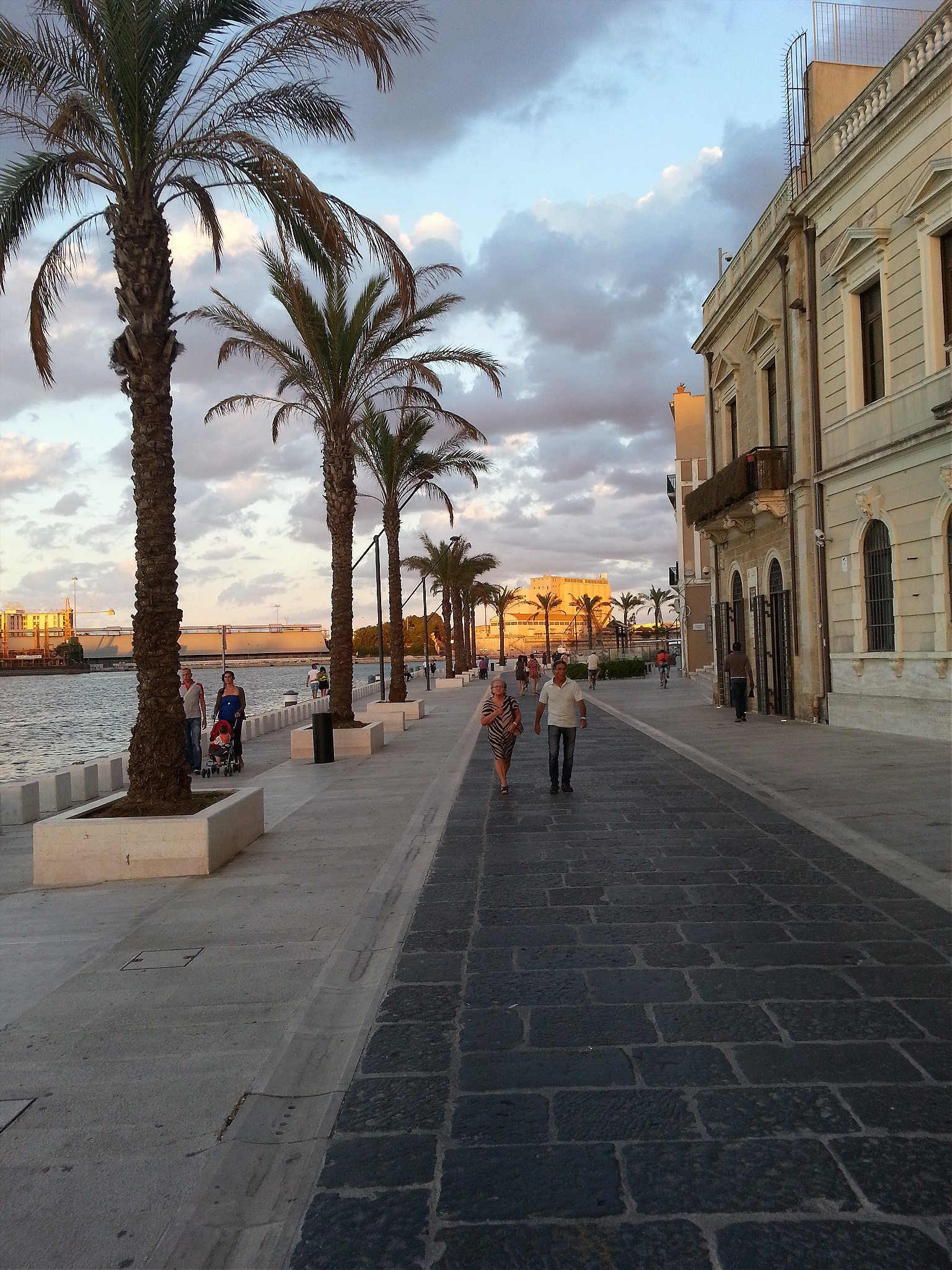
The next morning I catch a bus and pass through the security of the Italian air force base where the peacekeeping logistics base is quartered. There are about 30 of us, a cacophony of nations, continents, and languages. Sixteen of us are peeled off for Civilian Pre-Deployment Training. The Brazilian woman running the show assures the three of us with lost luggage that bags often get lost coming from Rome. But they always arrive. The administrative office can help. I go down at the break. Francisco, a clerk in the office, takes my information and promises to call Alitalia.
That night, after white wine and an antipasto misto shared with a Canadian lawyer on her way to the Democratic Republic of the Congo, I wash my clothes in the hotel sink. The first day of training was long. No-one was particularly happy to be there. A few were downright disruptive, refusing to answer questions, interrupting the instructors, reading email. Most of us had already spent time in missions before, some have been in for years. Eight hours on the legal and political underpinnings of peacekeeping can make even the most wide-eyed and committed of us feel cynical and jaded and prone to heckling.
The next morning I walk down to the little ferry that crawls across the harbor. Then a short walk to the base. The Russian lawyer, also on his way to the Congo, got his bags the night before. No word on mine. Francisco promises to keep calling. I find a website that tracks baggage claims. They have my name there but the contact information is unrecognizable to me.
Dinner that night is local salumi, cured meats, porcini, and tagliatelle, and a small bottle of nero di troia. Later, I wash my clothes and hang them to dry in the shower. Then I watch Brazilian soccer collapse before the relentless might of the Germans.
The next morning I check with the office. Francisco has no word on my bags. The Cameroonian political affairs officer in the course has been re-united with his luggage. I check the website but it offers nothing. I try calling and speak to a lovely Italian woman.
“We are going to find your bags, signore. You must be patient.”
“Can you tell me if they made it to Rome? I just want to know if they made it to Rome.”
“I cannot tell you that.”
“How about Brussels? Just tell me they made it to Brussels.”
“I cannot tell you that.”
“Can you just ask someone to look? I mean, just get someone to go and look for them. They are so big. You can’t miss them.”
“I am at a call center, signore. Not the airport.”
I begin to hope that they drag me off for a fake execution
That day we have our simulated convoy management and hostage taking. As armed gunmen pull me from the van and make me kneel on the ground in the hot sun I keep thinking that my jeans are getting dirtier and dirtier. I am not able to wash them because they take too long to dry. I begin to hope that they put a black bag over my head and drag me off for a fake execution just so I can get up off the ground.
After the exercise I call Alitalia. They deny my claim exists. But it is half-hearted. They are toying with me.
Finally, the airline tracks down my claim.
“I don’t want the bags delivered to Brindisi. I just want to pick them up in Rome. I have to fly through there on Sunday anyway.”
“That will be just fine. We will call you when we find them.”
Dinner is vino rosado and quattro formaggio pizza with a large group. One of them was recently kidnapped in Yemen. He escaped by running into the desert under the sharp chupse of bullets overhead. Other stories come pouring out. IEDs in Afghanistan. Shelling in Bagdad. Random attacks on internationals in South Sudan. I even pull out a story of being whisked through a riot in northern Kosovo in an APC that had taken an AK-47 bullet in the windshield. That was 12 years ago. Since then the most excitement I’ve had is when a streetcar driver ran out and banged on my window because he cut him off.
Afterwards, I wash my shirt, underwear, and socks in the sink. Maybe I should do some shopping. I could survive a week in Brindisi but how long could I go in Liberia without my stuff? I couldn’t go to work every day in jeans and beat-up hiking boots. It might be fine for being pretend-kidnapped but not so much for pushing paper.
The next day I speak with Alitalia three times. The first two times they can’t find any record of my file. The third time they tell me they have been trying to call me.
“Why did you call me?”
“Oh signore, I can’t tell you that. It was the airport calling you. I am at the call center.”
Dinner is at Trattoria Mario, a simple place cut out of the side of a building and stashed in a narrow alley. We feast on an incredible spread of seafood antipasto and fresh pasta with swordfish. I had already washed my clothes so I could stay out a little later.
Friday morning Alitalia tells me that they have found one bag in Rome. The green bag. It was in the Air Canada storage locker.
“What about the other?”
“Oh, signore, usually they are found close together.”
“Has anyone looked in the storage locker?”
“I don’t know signore. They are at the airport. I am at the call center.”
At dinner—Mario’s again—my classmates toast me and my green bag over pasta with mussels and clams. It’s our last night. We laugh, exchange gossip, and tell outlandish stories of mission life. We promise that we will stay safe, and in touch, and we wish each other good luck.
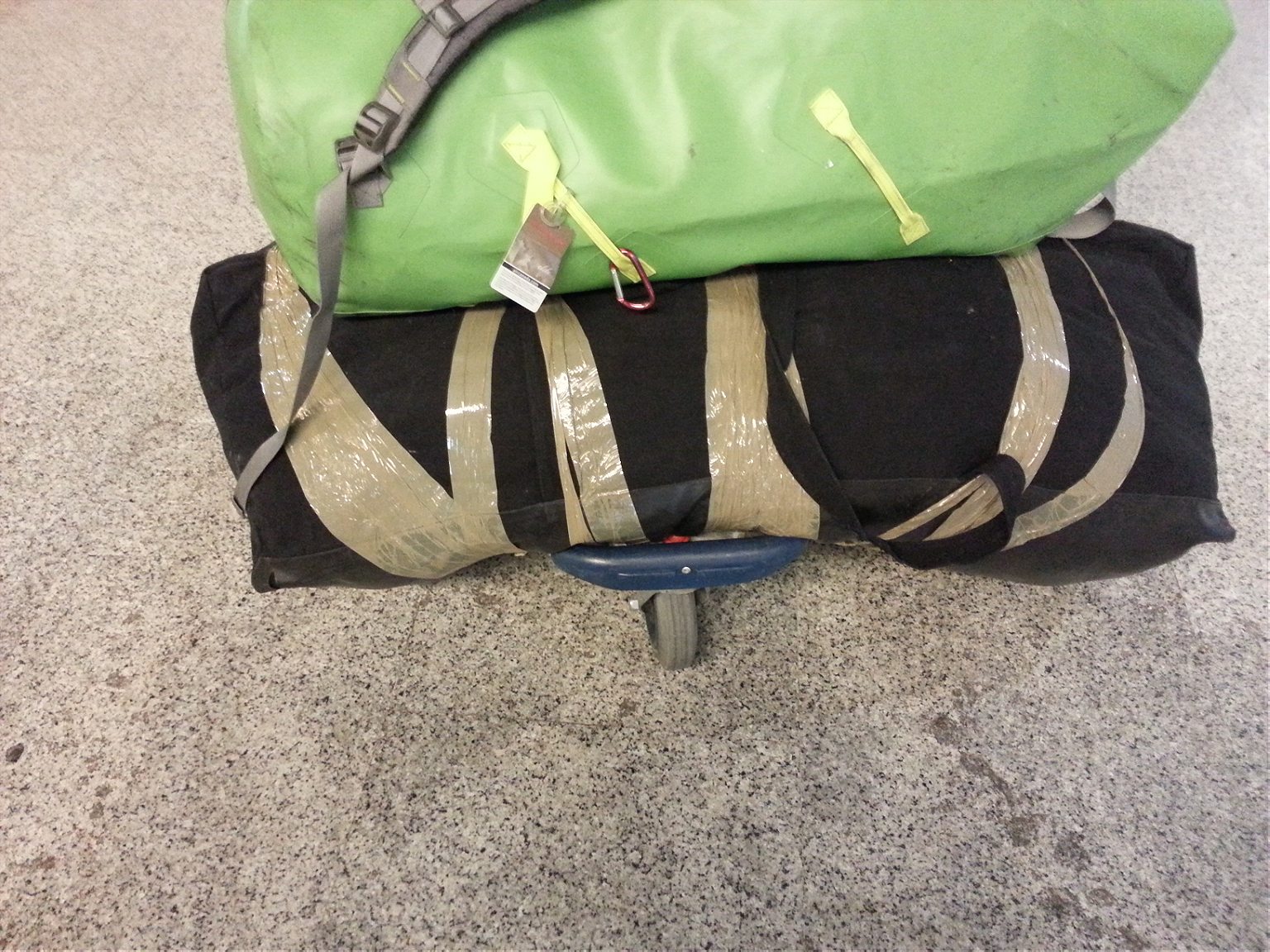
The next day I take to the train to Lecce, a medieval town a short train-ride form Brindisi. I’m walking by the Roman amphitheater in the old town. I get a call.
“Signore, your bag has arrived in Brindisi.”
“Which one?”
“It is a big green bag.”
“I wanted them to keep it at Rome.”
“You should have asked them. I will deliver it to your hotel.”
“No. I am going to the airport tomorrow. I can pick it up there.”
“No problem. It will be at the lost and found.”
“Any word on the other bag?”
“I don’t know. I am at the airport. There is only the green one.”
I am not the most petit fellow. I know this. Usually I am okay with it. Apparently, though, I am the largest man in Italy. After hours of trying on tight, small clothes I find some tight, small clothes that fit. Sort of. The jeans are so low slung that my hips are exposed to the fresh air. I have that feeling you get in a dream when you’re standing in front of people wearing only a towel. Tight and stretchy, they start in the middle of my thighs and end at my calves. Like capri jeggings.
The only shoes that fit the width of my feet were so long that I look like a clown. The shirts are XXL and fit fine around the shoulders and chest but flop over my wrists and came down to my knees. If I am lucky people will think that I am starring in some hipster production of Peter Pan.
That night after dinner alone at Mario’s, I get a call from the front desk of the hotel. My green bag has been delivered from the airport.
There is a knife in your bag
In the morning I get another call. My other bag—the big black one—has been found at last. It is in the Air Canada locker at the Rome airport.
“Can you please keep it there? I will be there this afternoon.”
“Of course, signore, you can pick it up at the Alitalia lost and found.”
A few hours later, I am at that very Alitalia lost and found in the Rome airport. It takes an hour before they locate my black bag. It is in the Air Canada depot waiting to be sent to Brindisi. To pick it up, I have to go back into the arrivals gate through the staff security entrance.
I put my bag through the x-ray machine and, as I collect them on the other side, the woman on the x-ray calls me over.
“There is a knife in your bag.”
She shows me on the screen. And, sure enough, in the big green bag I checked through a thousand years before, there is a knife.
“You must remove this knife if you want to go through.”
So up against the wall, staff squeezing past me, under the watchful eye of a guard and a soldier he has called in to help, I go through the bag and locate the knife. It is a fixed blade river knife I use for camping. I pass it over and start repacking.
“Signore, there are two more knives.”
I find the other two knives, repack my bags, and locate the storage desk. I am soaked in sweat. I am beginning to lose my shit. I look for a trolley. There are none in the trolley area. A space that can hold three or four hundred of them is empty. Totally empty. I find one tucked into a side corridor holding an Alitalia marketing banner. I throw the banner down and take the trolley.
I am finally re-united with the big black bag. It has had its own adventure. It is wrapped with packing tape and has a large hole in the side. One of my shoes is sticking out. As I am trying to stuff things back in, a man in an Alitalia uniform accuses me of stealing his trolley. I keep walking, pretending that I can’t see or hear him.
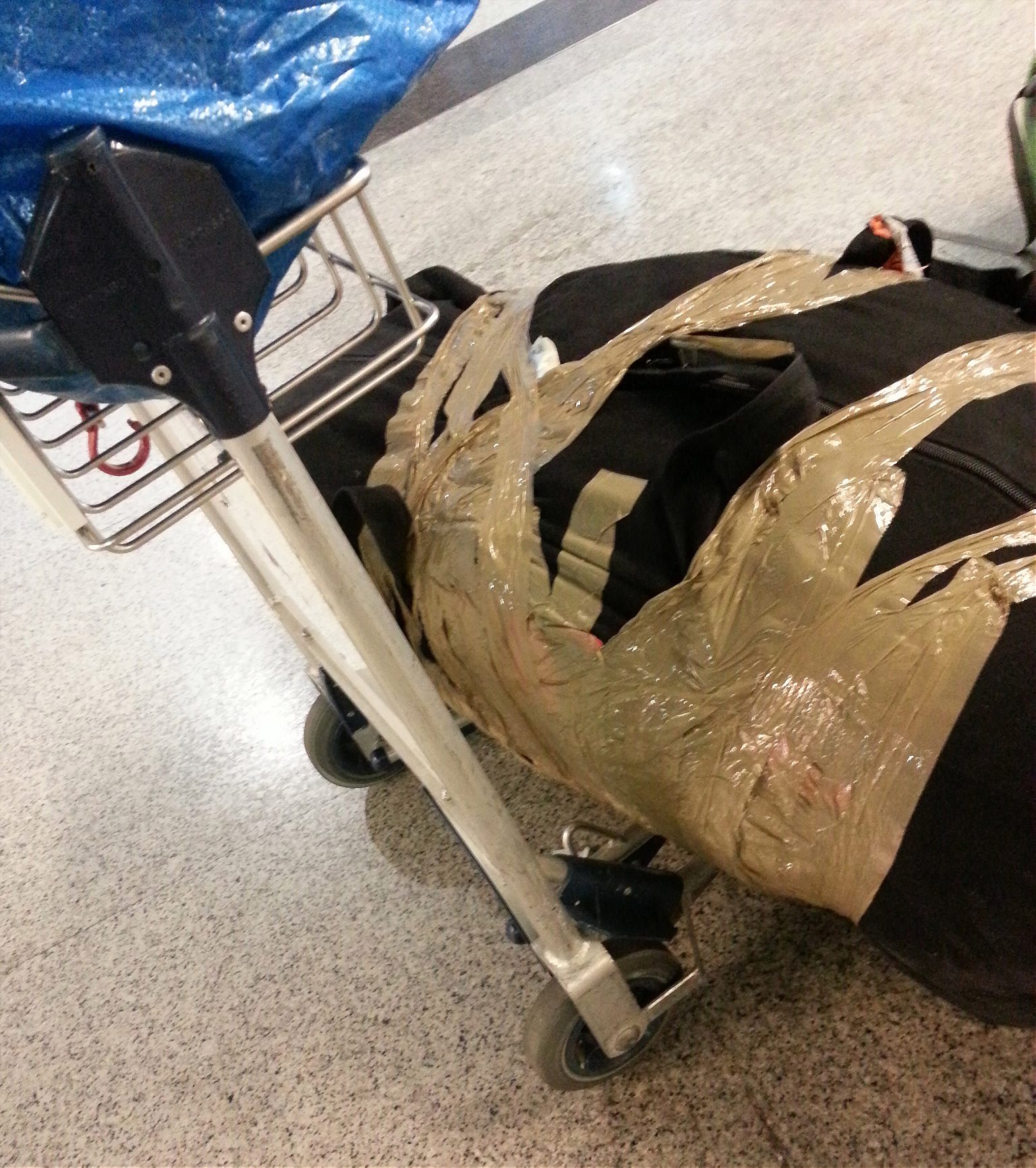
Stained with sweat, covered with the grime of travel, the day, my labors, I arrive at the Brussels Air check-in, dazed but relieved. I may look like a madman, but I’m flying business class. They will take care of me. I pass over my documents and put my bags on the belt. The big black one is in rough shape but I figure if I don’t touch it, it will make it.
“Signore, there is a 32 kilogram limit for your bag.This one is 26 kilograms over the limit.”
“Yeah. Okay. I am happy to pay whatever. I just want to get it there.”
“There is no way to pay.”
“Excuse me?”
“The limit is final. You cannot pay. You cannot bring more than 32 kilogram in each bag.”
“Look, I’ve been through a pretty bad day. I am happy to pay. I mean, this is business class.”
“You cannot pay.”
“Can I speak to your service manager?”
“Signore, it is Sunday. There is no one here.”
“No one?”
“No. We close in 20 minutes, signore.”
With my sweating and my frenzy, I begin to fear that, at any moment, I will be swept up as a visible security risk. I begin to remove things from my bag. Two suits. Three pair of shoes. A tangled web of neckties. It is messy, hurried business off in the corner. I leave everything in a pile next to a garbage can.
My first attempt gets me down to 34kg. The man still won’t let me on. I go back to my little corner by the garbage can and try again. The black bag is a disaster. It has an ever-growing hole in its side. I find one of those kiosks that wraps your suitcase in plastic, beg them to move me to the front of the queue. I get back to the check-in as they are closing. I make the weight by a kilogram.
I am routed through Brussels en route to Monrovia and have to spend the night at a dismal airport hotel. I wake up every two hours because of strange noises in the room. I would think it was haunted if it wasn’t so damn depressing to think about how that could have come about. In the morning, I check in for my flight to Monrovia. The plane is new and, after a two hour delay, it climbs easily into the air. Great service. Good food. Incredible views of the Sahara—it is a boundless sea of sand, curving with the earth as far off on the horizon as you can imagine. And then the jungle. Not just green—verdant. Cut through with the occasional gray river and red-brown road. We land in Freetown, and then after a short hop, in Monrovia.
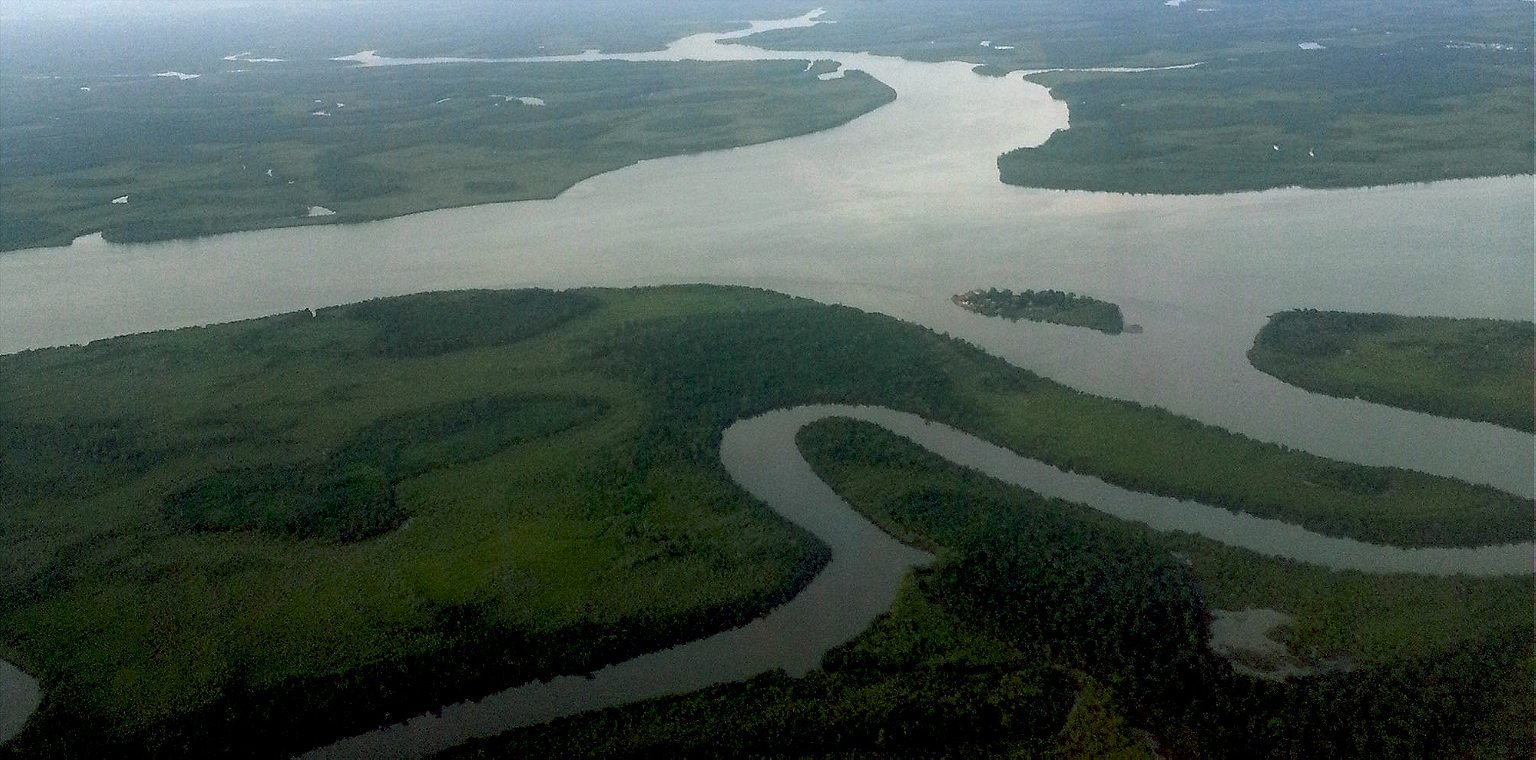
Despite not having the proper paperwork—a whole other story—I am waived through with grace and humor. There is a woman waiting for me with a sign; my first and last names are in the proper order, spelled correctly. The airport is rough and busy, but I love it. The cadences are quick and energetic. Bodies and voices swirl around and tumble into one another.
We wait at the baggage claim. We wait and wait. Every time a green bag comes onto the belt my driver asks me if it is mine. It is not. They never arrive. We jostle our way into the queue to report two missing bags. One big green one. And an even bigger black one with a massive hole in the side.